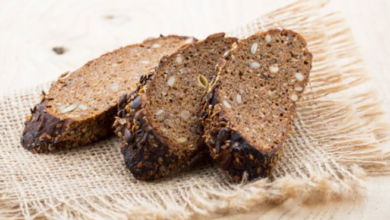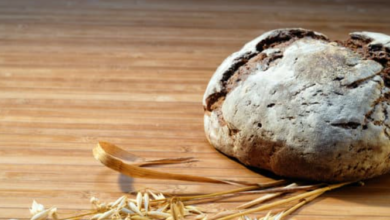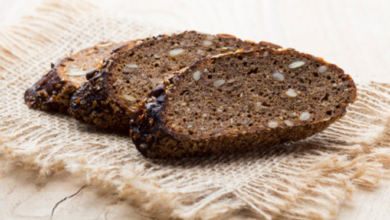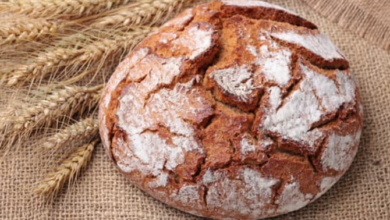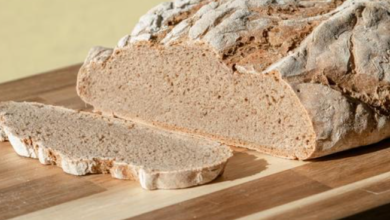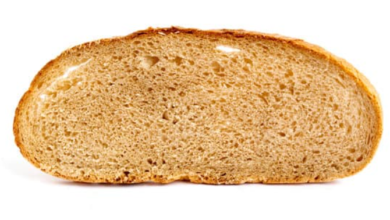Rye Bread: Is It Dry or Moist?
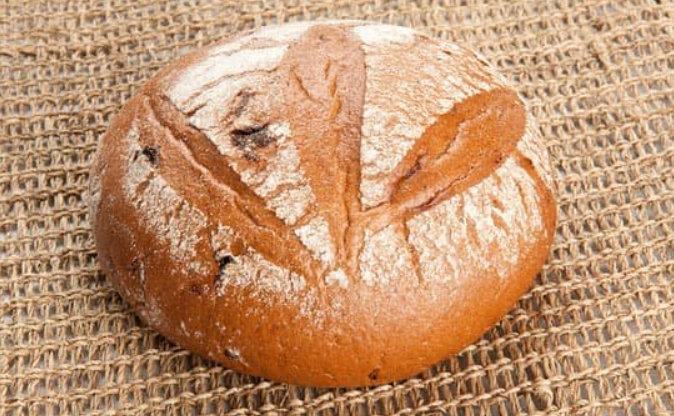
What To Know
- Whole rye flour, which contains the entire rye grain, produces a denser and more crumbly bread than light rye flour, which is made from the endosperm of the rye kernel.
- Your rye bread may be dry due to several factors, such as overbaking, using too little water in the dough, or using a high proportion of whole rye flour.
- To make your rye bread less dry, you can try increasing the amount of water in the dough, adding gluten or wheat flour to the mix, or using a steam injection method during baking.
When it comes to bread, texture plays a crucial role in the overall eating experience. Among the various bread types, rye bread often sparks a debate about its dryness. Some find it delightfully crisp, while others may perceive it as too crumbly. In this comprehensive guide, we delve into the factors that influence rye bread’s texture and explore whether it is inherently dry or not.
The Nature of Rye
Rye, a cereal grain related to wheat and barley, is the primary ingredient in rye bread. Compared to wheat, rye contains a higher proportion of pentosans, a type of soluble fiber. These pentosans absorb water and contribute to the bread’s dense and chewy texture.
The Role of Fermentation
Fermentation, a crucial step in breadmaking, further influences the texture of rye bread. The yeast used in fermentation produces carbon dioxide, which creates air pockets within the dough. However, rye dough tends to be stickier than wheat dough, making it more challenging for the gases to escape. As a result, rye bread may have a denser structure with fewer large air pockets.
Baking Techniques
The baking process also plays a role in determining the dryness of rye bread. Higher baking temperatures and longer baking times can lead to a drier loaf. However, adding water to the dough or using a steam injection method during baking can help to maintain moisture.
Type of Flour
The type of rye flour used can also affect the bread’s texture. Whole rye flour, which contains the entire rye grain, produces a denser and more crumbly bread than light rye flour, which is made from the endosperm of the rye kernel.
Additives and Ingredients
Certain additives and ingredients can influence the dryness of rye bread. For example, adding gluten to the dough can improve its elasticity and reduce crumbliness. Additionally, using a combination of rye flour and wheat flour can create a bread with a more balanced texture.
Personal Preferences
Ultimately, the perception of whether rye bread is dry or not is subjective. Some individuals prefer a crispy crust and a dense crumb, while others may find a softer texture more appealing. Personal preferences play a significant role in determining one’s verdict on rye bread’s dryness.
Is Rye Bread Good for You?
Nutritional Value of Rye Bread:
Rye bread is a nutrient-rich food that offers several health benefits:
- High in fiber: Rye bread contains both soluble and insoluble fiber, which supports digestive health and promotes satiety.
- Rich in B vitamins: Rye bread is a good source of B vitamins, including thiamin, niacin, and folate, which are essential for energy metabolism and brain function.
- Contains antioxidants: Rye bread contains antioxidants that help protect cells from damage.
- May improve blood sugar control: The soluble fiber in rye bread helps to slow down the absorption of sugar into the bloodstream, which can benefit individuals with diabetes or prediabetes.
FAQ
Q1: Why is my rye bread so dry?
A: Your rye bread may be dry due to several factors, such as overbaking, using too little water in the dough, or using a high proportion of whole rye flour.
Q2: How can I make my rye bread less dry?
A: To make your rye bread less dry, you can try increasing the amount of water in the dough, adding gluten or wheat flour to the mix, or using a steam injection method during baking.
Q3: Is rye bread healthier than white bread?
A: Rye bread is generally considered healthier than white bread due to its higher fiber content and nutrient profile. Fiber supports digestive health, promotes satiety, and may improve blood sugar control.
